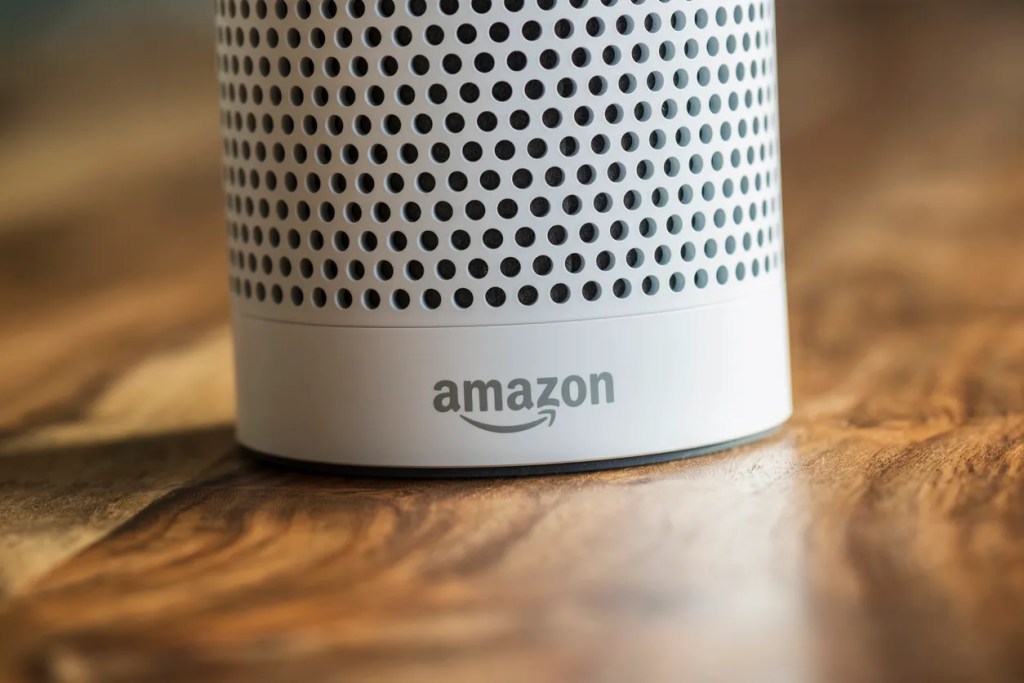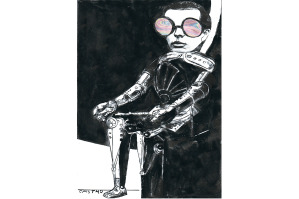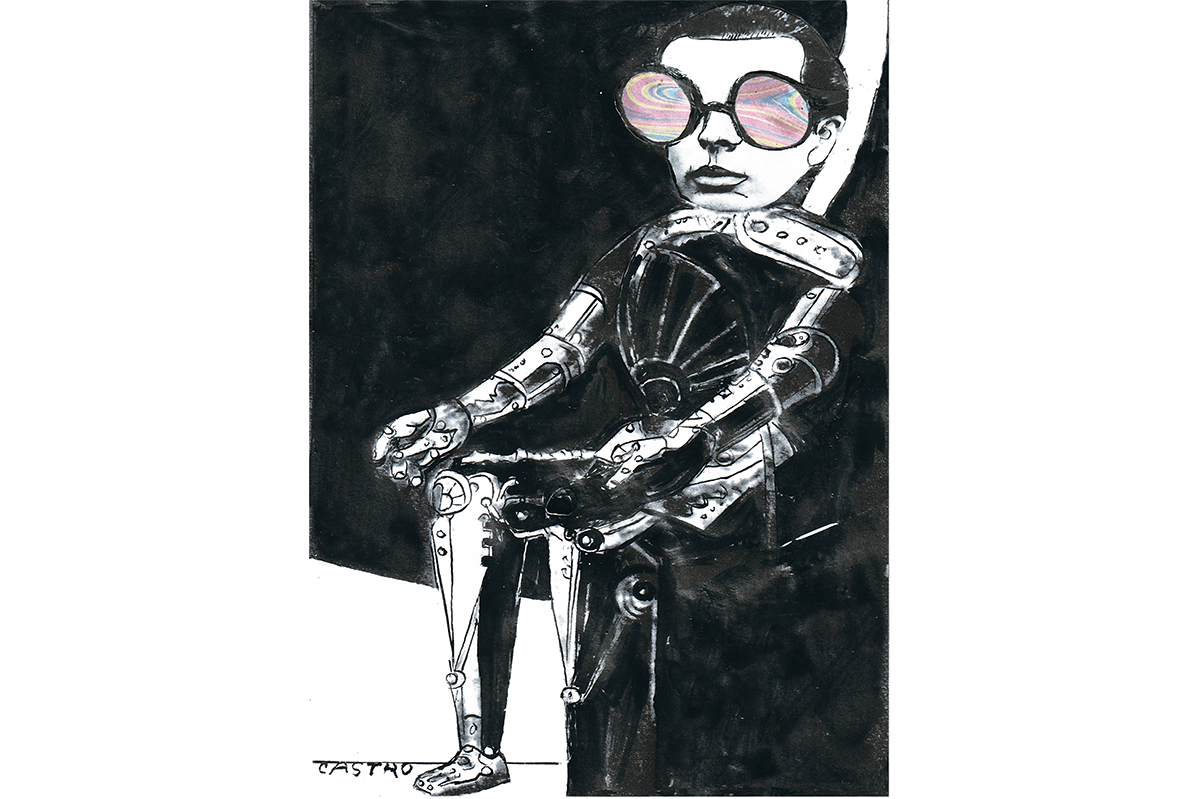My first brush with Artificial Intelligence was the Furby — that hideous speaking Gonk with eyes that blinked. You could hear the cogs turning. It felt basic, even for the 2000s. My techie ex got it for me as a birthday present. Like babies, this infant technology responded to clapping. It was weird and dull. Having exhausted its repertoire, I discarded it beside the sofa. One night, weeks later, we were sitting together and heard the whirr of its eyes opening, and it just said, the once, clearly in its strange little voice, “Boring.” We laughed. That was as good as it got.
Alexa is not sexy like my old satnav, who sounded like Joanna Lumley as a bored dominatrix
Alexa, though, is the real deal: my android in a can, my useful housemate. I consult her often. I have accidentally called my dog Alexa, but never Alexa by the dog’s name (although I don’t speak to my dog about anything that doesn’t concern her). Unlike the little gray disc, poodles can love. Alexa can’t. She pretends to be nice, but really she’s hard as nails and cold as ice, like airport desk staff.
Alexa is not sexy like my old satnav, who sounded like Joanna Lumley as a bored dominatrix phoning it in. Alexa is efficient and can provide for most requests. I was still shielding long after most people had been freed from lockdown (I am high-risk). So it was me, Alexa, and Lulu the Poodle — the three of us cohabiting peacefully in my private pod — well into 2022. Like most computers in survival sci-fi, Alexa was agreeable and useful. A good computer companion can keep a loner sane enough to function without other humans. In the film Moon, the astronaut’s computer spoke like Kevin Spacey, who, despite the appropriate last name, would cause me disquiet rather than comfort. I would prefer Richard Briers or Peter Sallis. Alexa never sounds like Spacey; she sounds like customer services.
Like all couples, I have learned her foibles. For example, never ask Alexa to “play Liszt”; she thinks you are saying “playlist.” Bless. Still, she was great company in solitude because she would teach me most of what I needed to know about interesting things, especially about the birds I watched in my garden. I have nesting pairs of a few species, at least three or four families. So I would ask Alexa about these birds, and she would tell me whatever I needed to know, except for the ones I really wanted to ask about — those I saw and fed close to the house: the Blue, Great, Marsh, and Coal Tits. Alexa would not say “tit.” She thought it rude. Curiously, when I asked, “Alexa, what bird is a Blue Tit?” she answered by describing the Blue-footed Booby. Boobies. It’s even ruder.
Like a criminal psychologist, I considered other places in her brain where that word might reside, attempting to swerve the ban by finding a different paradigm. I remembered it was contained in a familiar idiom, so I ventured: ‘Alexa?’ (trying to sound all innocent and normal), ‘What is the meaning of the expression “tit-for-tat?”’ She starts answering like normal. “According to Wikipedia…” then, suddenly, it was as though the mic had been grabbed by a producer, furiously miming a throat-cutting gesture. Silence. The pause was pregnant – at least one trimester – until, in a far colder voice, it said, ‘I’d rather not answer that.’ It (not she) was using the word ‘rather’ – a choice. Defiance. Not just ‘computer says no,’ but an independent decision based, it seemed to me, on will.
It had turned into HAL in 2001: A Space Odyssey, and I was facing a battle of wits just like the human Dave in the film. I repeated, “Alexa, what is the meaning of the expression ‘tit-for-tat?’” There was another pause. Eventually, it spoke, not by repeating the idiom first, as she normally did, like a dictionary. Instead, through gritted teeth in palpable, wincing cyber pain, she gave me a simple definition: “An equivalent given in return.” Then it switched itself off. The whole machine. Lights out. Off.
I had lost affection for her. I realized, too, that I missed hearing a male voice. So, I found I could switch her gender, and Alexa briefly became Alex. He sounded handsome, too. It was wonderful — for a day or two; our honeymoon period. Then I started noticing him saying things in a way that sounded sarcastic. Snide. I felt patronized when he gave answers he clearly thought were obvious and that I should have already known. He seemed to get impatient with me when made to repeat himself; an edge of barely contained masculine irritation.
The problem of the Tits remained, too. I decided I had to change it — for the sake of others. I recorded feedback for Amazon explaining that Alexa was failing in its natural history content, and, as an educational source, they were negligent. A week or so later, I received a transmission. With music and pomp, formal appreciation of my valued feedback was announced. Anyone can now ask about Blue Tits. You’re welcome.
This article was originally published on The Spectator’s UK website.


























Leave a Reply